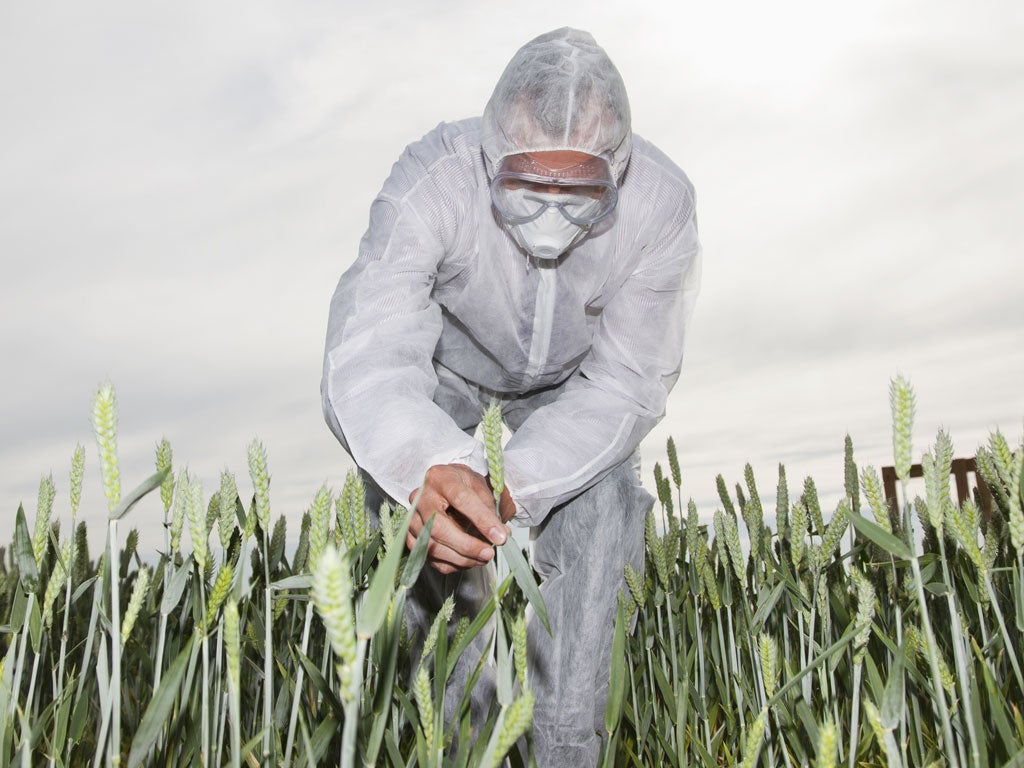There is undeniable risk in producing the GM rice that the Environment Secretary is proposing
A response to Owen Paterson: You can’t just genetically modify your way out of poverty


Owen Paterson, Environment Secretary for the greenest government ever, apparently believes that climate change is a good thing, that the RSPCA want badgers to suffer from TB, and problems caused by vitamin A deficiency have only one solution: genetically modified “golden” rice. And that if you don’t agree with him you are “wicked”. This emerged in an interview in yesterday’s Independent. And although he did not identify Greenpeace as disagreeing with him, my organisation is clearly one he might have had in mind.
There are already seven proven vitamin A strategies in use today, including supplements and fortification of basic foodstuffs as well as community-based small holdings in poor regions to grow fruit and vegetables. “Golden” rice is not among them, because, as the International Rice Research Institute, which is developing the technology, admitted this year: “It has not yet been determined whether daily consumption of ‘golden’ rice does improve the vitamin A status of people who are vitamin A deficient and could therefore reduce related conditions such as night blindness. This process may take another two years or more.”
“Golden” rice has yet to cure a single case of vitamin A deficiency, and it is an indictment of the GM industry that its PR is always about its hopes for the future, never its achievements so far. And contrary to propaganda, opposition to “golden” rice in the Philippines is being led by local farmers and church leaders.
Greenpeace has welcomed many of the advances being made in biotechnology. Sophisticated plant breeding techniques utilising genome sequencing and marker-assisted breeding have brought us blight-resistant potatoes and crops enriched with nutrients; flood-tolerant rice and drought-tolerant maize. All are being used successfully today by thousands of farmers in Africa. None though, are GM.
The GM industry will claim that there is no risk attached to its products, as all industries tend to do, but at least when other industries turn out to have been mistaken, there is the possibility of a product recall. There is an undeniable risk in allowing a self-replicating GM rice to contaminate the most important food crop in the world.
Even MPs in Paterson’s own party recognise the problems. Zac Goldsmith complained that “Owen Paterson’s comments about ‘golden’ rice and children going blind were nonsense. He’s swallowed the industry line hook, line and sinker.”
On their website, the inventors of “golden” rice say that “the most desirable option would be a varied and adequate diet”. We agree. You can’t just genetically modify your way out of poverty. We’re not against technological advances, but access to a healthy diet is a basic human right. We need an agriculture that is geared towards meeting the requirements of poor people. With the political will, it can happen.
John Sauven is executive director of Greenpeace UK.
Join our commenting forum
Join thought-provoking conversations, follow other Independent readers and see their replies
Comments
Bookmark popover
Removed from bookmarks